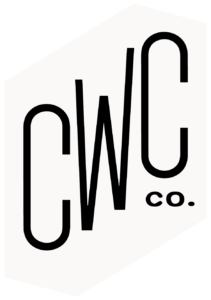Common Wealth Crush
About
Partners: Ben Jordan, Tim Jordan, Patt Eagan, & Lee Campbell
Winemakers: Ben & Tim Jordan
Vineyards: Sourcing fruit from trusted growers across the Shenandoah Valley
Vineyard management: Sustainable
Soils: Varied by site, with limestone bedrock common throughout the region
Grapes grown: A wide range including both vinifera and hybrids
Annual production: Around 14,000 bottles of their own branded wines, plus another ~150,000 bottles for custom crush clients
Quick facts:
- Common Wealth Crush is a “custom crush meets business incubator meets thinktank cooperative” helping to grow the next generation of Virginia winemakers.
- Their ambitious incubator program provides an entryway for people who have traditionally not had access to the production side of the wine industry.
- Their own brand of wines uses sustainably grown fruit, hybrid grapes, and low intervention winemaking to push the boundaries of what Virginia wine can be.
- “I’m excited about what we’re doing at CWC because we’re playing a role as tastemaker, driving forward the idea of what winemaking is and how it’s accepted in domestic circles.” – Lee Campbell
Common Wealth Crush began as the solution to a problem: Ben and Tim Jordan were both making their own “side project” wines using the excess capacity at the wineries where they worked their “day jobs,” but there was no room for growth–for them, or for the established wineries they’d partnered with. The two brothers began to dream of a project modeled after the cooperative wineries in Europe, where small wineries band together to share space and equipment. Custom crush facilities in California were another inspiration, but the Jordans envisioned a more democratic and accessible model. They partnered with Patt Eagan for his business expertise and Lee Campbell, a veteran of the New York natural wine scene, on the hospitality side, and in 2022, Common Wealth Crush opened its doors in Waynesboro for its first harvest.
What’s unique about Common Wealth Crush is the wide variety of services it offers to a wide variety of clients. For small winemakers, it offers space and equipment with the flexibility to work the way they want to. Custom crush clients are able to benefit from Ben and Tim’s years of expertise with the stylistic and technical aspects. Even larger, more established wineries who are outgrowing their existing spaces have taken advantage of the opportunity to increase capacity without a massive capital outlay. Perhaps most exciting is CWC’s incubator program: it’s an ambitious program to steward two new wine brands into existence each harvest. Unlike a collaboration, the participating makers have true ownership of their brands. The idea is that CWC can provide whatever support is necessary–from the winemaking side to the business side–and then gradually take off the “training wheels” so the new brands can eventually operate independently. “We’re making crush available to whoever and whatever wants to create their own wine brand – in a way that custom crush services aren’t doing in CA,” Lee explains. It’s part of their commitment to diversifying the people who are involved in the production side of wine in Virginia.
In addition to their custom crush operations, CWC also makes a line of wines under its own brand: “It’s where the partners get to play!” Lee jokes. The idea is to experiment with grapes, techniques, and styles to push the boundaries of what Virginia wine can be. All of their fruit is sourced from the Shenandoah Valley. Besides the fact that it’s where Ben and Tim grew up–what Lee calls the “heart and soul” reason–there are a number of pragmatic reasons why they feel the AVA is producing the highest quality fruit in Virginia. Its higher elevation means cool mornings and a larger diurnal range, critical for retaining acidity. It’s also relatively dry compared to other parts of Virginia, since the Blue Ridge mountains act as a rain shield. Interestingly, the region was an ancient ocean floor, before it was pushed up by colliding tectonic plates, so the bedrock is mainly limestone, and you can still find fossilized sea creatures in the soils. Thanks to Ben and Tim’s many years of work in the region, plus Tim’s work as a vineyard consultant, they have a great network of trusted growers who are farming thoughtfully and as sustainably as possible in Virginia’s challenging humid climate. As Patt explains, the key question is “Do they care about the same things as we do?” Ultimately, they’re able to source top quality fruit, which is especially important since they’re making low intervention, low additive wines.
Working with hybrid grapes is another way that Common Wealth Crush is pushing the boundaries of what Virginia wine can be. The main reason is that these grapes, crossings between traditional European vinifera varieties and local American grapes, require fewer inputs during farming: “If you’re trying to get to sustainable farming in Virginia, hybrids is probably the way to do it,” Lee tells us. There are still challenges, but in general these grapes are more resistant to disease pressure and late spring frosts, making them more adaptable to the changing climate. At CWC, they treat hybrids and vinifera grapes exactly the same during winemaking, and often blend them together. “At the end of the day the wine speaks for itself,” as Lee explains. “The idea that we can make very high quality wines from these grapes is what’s driving us. We’re proving to the industry that they don’t need to denigrate these grapes. As we see Europeans getting on board with PIWIs as well, this hybrid thing is just a matter of time.”

